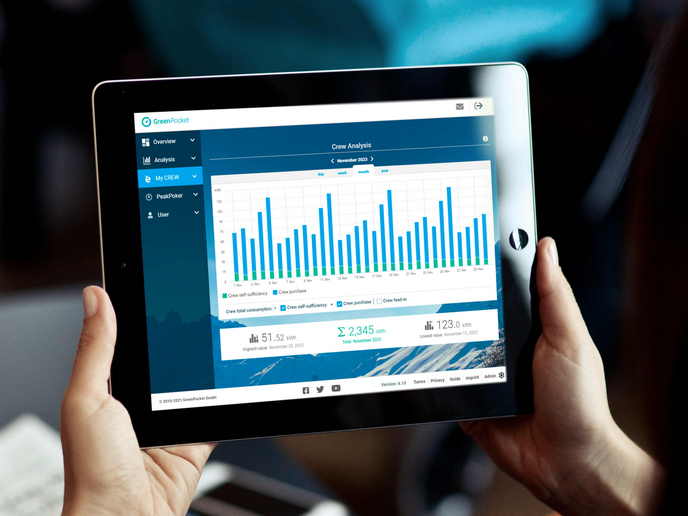Community renewable energy webs overcome barriers to energy inclusivity
The EU is a global leader on renewable energy technology and its deployment. More and more organisations and households are getting onboard, producing electricity from renewable energy sources like the sun. The 2018 revision of the Renewable Energy Directive introduced new provisions for citizens to play an active role by enabling renewable energy communities and self-consumption of renewable energy. However, participation is still limited, partly due to the administrative capabilities that are necessary within the energy communities. The EU-funded eCREW project was designed to expand the possibilities for citizen involvement by having a local energy supplier take over all administrative tasks, from billing to providing the required IT systems.
Generating benefits, not bureaucracy
The eCREW project’s business model brings together consumers, prosumers and energy retailers. The energy retailers – the local energy providers – act as so-called community administering entities. “They take on all administrative responsibilities including organisational matters, billing and conflict resolution so the community renewable energy webs (CREWs) can focus on increasing their community benefits,” explains project coordinator Johannes Reichl of the Energy Institute at the Johannes Kepler University Linz. Furthermore, the project’s innovative scheme of household cooperation in energy management enhances inclusivity, since even households without their own photovoltaic systems (PVs) can benefit from solar energy. “This removes the barrier typically disconnecting lower income households or those living in multi-apartment buildings from the energy transition and renewable energy production,” notes Reichl.
A phone app and game make CREWs transparent and effective
eCREW’s app is a customised version of the ‘Energy Cockpit’ of partner GreenPocket. It provides CREW members (energy customers) with information regarding their electricity consumption and energy flows in the community. It tells them when surplus electricity from PVs is available in their community, and when to save money by exploiting this surplus for their power demand. At the same time, CREW members learn how much electricity they use every day and on what their consumption depends with the PEAKpoker game. It also helps them to identify additional electricity savings opportunities through comparison and ranking among similar households. Furthermore, it creates a friendly competition in which users are motivated to shift their demand to hours with solar electricity production to be more efficient than their neighbours.
Lessons learned
The CREWs in Germany, Spain and Turkey and a large follower community demonstrated the potential for success and the enthusiasm of citizens. They also highlighted a significant and unexpected barrier. Reichl explains: “Member States still have surprisingly different and incompatible electricity markets and technical standards, hampering the exploitation of eCREW’s technical readiness. In contrast to the vast homogeneity of competitors like the USA or China, a new development is required for each of our 27 small markets.” As the regulatory, legal and technical environments are harmonised across borders, the eCREW approach can expand energy inclusivity and accelerate the transition. “Energy communities do not minimise fossil fuels use by their existence. Citizens must shift electricity consumption patterns and to do so they need information about their current consumption and more efficient options throughout the day. Combining clever socio-economic incentives with comfort-increasing IT can maximise exploitation of renewable electricity’s potential,” concludes Reichl. eCREW has demonstrated how this can happen, with the necessary support from regulatory and legal frameworks.
Keywords
eCREW, energy, renewable energy, electricity, energy communities, prosumers, energy inclusivity, PV, photovoltaic, Renewable Energy Directive



